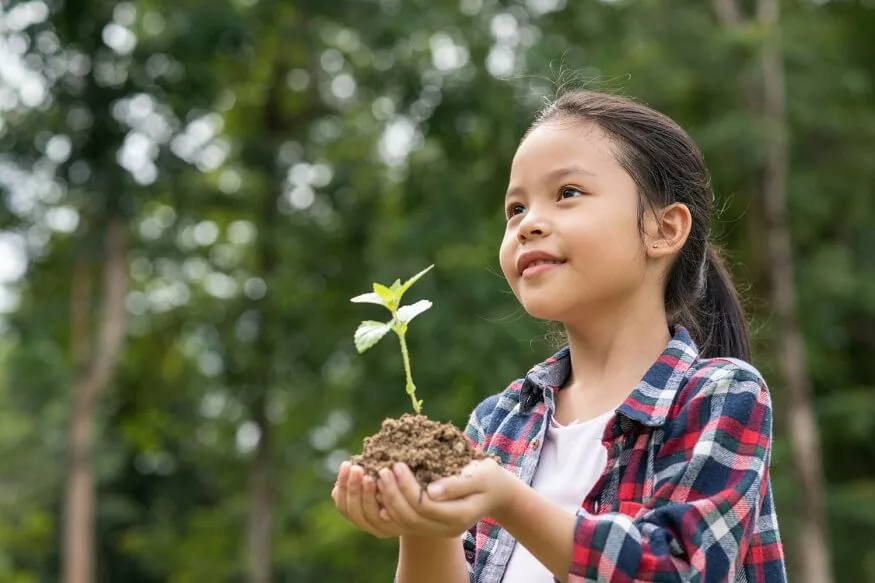In the evolving landscape of childcare, a growing awareness of the importance of sustainability has sparked a movement towards greener practices. Sustainability is more than a buzzword; it’s a holistic concept that embraces environmental consciousness, ethical considerations, and a commitment to creating a better future. As we embark on this journey of nurturing the youngest members of our society, exploring innovative ideas for sustainability in childcare becomes not only an ethical choice but a transformative approach to early childhood education.
Understanding the Concept of Sustainability
At its essence, sustainability is about meeting the needs of the present without compromising the ability of future generations to meet their own needs. It encompasses environmental stewardship, social responsibility, and economic viability, forming a delicate balance that ensures the well-being of both humanity and the planet. In childcare, the concept of sustainability extends beyond reducing ecological impact to include ethical and socially responsible practices that contribute to the holistic development of children.
Why is Sustainability Important in Childcare?
First off, children are like sponges – they absorb everything around them. By integrating sustainable practices into childcare, we teach them from a young age to respect and care for our planet. This early education can shape their attitudes and behaviours towards the environment as they grow up. Additionally, sustainable practices often result in healthier environments, reducing exposure to harmful chemicals and promoting better overall well-being.
Also Read: How To Teach Sustainable Habits To Kids
Creative Sustainability Ideas for Childcare
- Idea:
- Benefits:
- Idea:
- Benefits:
- Idea:
- Benefits:
- Idea:
- Benefits:
- Idea:
- Benefits:
- Idea:
- Benefits:
- Idea:
- Benefits:
- Idea:
- Benefits:
- Idea:
- Benefits:
- Idea:
- Benefits:
1. Green Play Spaces
Design outdoor play spaces with sustainability in mind. Utilise recycled or natural materials for play structures, incorporate native plants, and create opportunities for children to interact with nature.
Encourages a connection to the environment, fosters a love for nature, and promotes physical activity.
2. Eco-Friendly Art Projects
Replace traditional art supplies with eco-friendly alternatives, such as recycled paper, non-toxic paints, and natural dyes. Encourage children to create art that reflects their appreciation for the environment.
Teaches the importance of waste reduction, sparks creativity, and reinforces environmental awareness.
3. Waste Reduction Initiatives
Implement waste reduction practices, such as composting organic waste, recycling materials, and reducing single-use plastics. Involve children in sorting waste and explain the importance of responsible waste management.
Instils a sense of responsibility, teaches practical sustainability habits, and reduces the carbon footprint of the childcare facility.
4. Educational Gardens
Create a small garden where children can participate in planting and caring for fruits, vegetables, or flowers. Use the garden as an educational tool to teach about the life cycle, biodiversity, and sustainable agriculture.
Enhances knowledge of nature and food sources, encourages healthy eating habits, and fosters a sense of responsibility for living things.
5. Water Conservation Practices
Implement water-saving measures, such as using low-flow faucets, teaching children about responsible water usage, and incorporating water conservation lessons into the curriculum.
Raises awareness about the importance of water conservation, instils good habits from a young age, and contributes to overall environmental sustainability.
6. Energy-Efficient Facilities
Adopt energy-efficient technologies and practices within childcare facilities, such as using energy-efficient lighting, appliances, and renewable energy sources where feasible.
Reduces energy consumption, lowers operational costs, and sets an example for children about the importance of energy conservation.
7. Outdoor Learning Experiences
Take learning outdoors by incorporating nature walks, outdoor science experiments, and environmental observation activities into the curriculum. Connect classroom lessons with real-world experiences in nature.
Enhances appreciation for the outdoors, stimulates curiosity about the environment, and reinforces the connection between classroom learning and the natural world.
8. Community Engagement
Foster a sense of community and social responsibility by engaging with local sustainability initiatives. Participate in community clean-up events, collaborate with local farmers or businesses promoting sustainability, and involve parents in eco-friendly projects.
Builds a sense of community, teaches the importance of collective action, and strengthens the connection between childcare facilities and their local environment.
9. Sustainable Snack Practices
Choose locally sourced and organic snacks, reduce single-use packaging, and teach children about the benefits of healthy, sustainable eating habits.
Promotes awareness of food sources, supports local farmers, and contributes to a culture of mindful consumption.
10.Nature-Inspired Learning Spaces
Design indoor learning spaces with natural light, eco-friendly materials, and nature-inspired decor. Create a calming environment that connects children with the natural world even when indoors.
Enhances the learning environment, promotes a sense of well-being, and reinforces the importance of sustainable design.
Also Read: Different Ways To Teach Kids About Flowers
Challenges and Solutions in Implementing Sustainability Ideas
Implementing sustainable practices in childcare isn’t without its challenges. Cost can be a factor, as eco-friendly materials often come with a higher price tag. However, this can be mitigated by focusing on long-term savings and benefits. Another challenge is the lack of awareness or education among childcare providers.
- Challenge:
- Solution:
- Challenge:
- Solution:
- Challenge:
- Solution:
- Challenge:
- Solution:
1. Educating Staff and Parents
Lack of awareness or understanding among staff and parents.
Conduct workshops, provide resources on sustainability, and encourage open communication to foster a shared understanding of the importance of sustainable practices.
2. Financial Constraints
Budget limitations may hinder the implementation of certain sustainable initiatives.
Prioritise cost-effective initiatives, seek partnerships with local businesses, and explore grant opportunities to support sustainability projects.
3. Resistance to Change
Resistance from staff, parents, or even children to adopt new sustainable practices.
Foster a culture of inclusivity, provide information on the benefits of sustainability, and involve stakeholders in decision-making to ensure a smooth transition.
4. Limited Outdoor Space
Limited outdoor space for green initiatives.
Maximise the use of available space, explore vertical gardening options, and incorporate potted plants or window gardens indoors.
Also Read: Ten Activities to Inspire a Sustainable Mindset for Children
As we navigate the complexities of modern childcare, integrating sustainability ideas becomes an opportunity to shape environmentally conscious, socially responsible, and ethically aware individuals. These initiatives not only contribute to a healthier planet but also foster a sense of responsibility and connection to the natural world in the youngest members of society.
In the spirit of cultivating green minds, EuroSchool embraces these creative sustainability ideas for childcare, sowing the seeds for a future generation that values, protects, and cherishes the delicate balance between humanity and the Earth.











